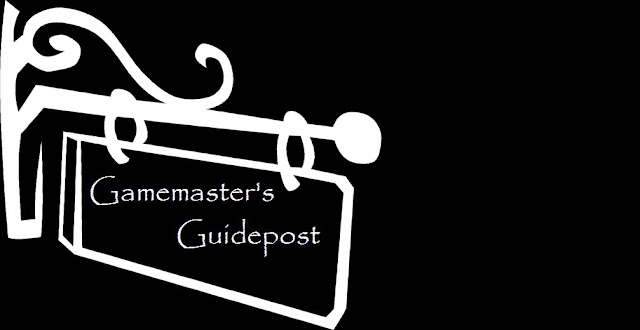They happen to everyone eventually. The game you’re running or playing in bogs down. Whether this is because the players (or GM) don’t know what to do next or the players (or GM) runs on a “tangent” (non-gaming related talk at the table) or something else. It happens. It’s not something you can really stop or prevent from happening, but it is something you can prepare for and thus minimize the effects. Here’s a list of some of my favorite tactics to escape a bogged down game.
“Two Goons With Guns Jump Out At You!”
So the players (or the GM and some of the players) are debating on what to do next and it’s turned into a 3 hour debate (a 3 hour debate) and you keep rolling your eyes and trying to interject and . . . you are ignored. What do you do? Well, if you’re a GM the best thing is to just toss in something unexpected at the players to get their attention. Start a combat. Bring in a screaming NPC who begs for help. Do something to draw the attention to the game.
I Wanna Do Something Crazy
If you’re a player the best thing you can do is to be impulsive. Normally, I’d say “No, never do this. It’s bad gaming etiquette,” but in this case (and used sparingly) it can help get the game going again. Basically, as one of my player’s characters would say “I wanna do something crazy!” Be in the moment. Do whatever you think is right at the time and do not analyze it. Pretend you’re wearing Nike’s and Just Do It.
Thou Shalt Have No Table-Talk
Some GMs find comfort in a strict policy of “If it’s not related to the game we’re not talking about it.” I personally like to give everyone plenty of time to chat and catch for 15 to 60 minutes and then enforce this rule as much as possible. Most players will respect it, but some will balk at the restraints and do their best to circumvent it. When that happens give them a warning and make sure everyone knows what happens when the rule is violated. If they persist then enforce it. If they keep on – boot them.
The GM is usually elected by the players to run the game and therefore he is the collective will of the group. If they can’t respect that then they likely aren’t worth playing with.
Picking Over the Bones
I could probably go on forever with a post topic like this – I’ve had a lot of players to practice on – good and bad. When you’ve been running roleplaying games 1-2 times a week for 24 years you pick things up. It’s just inevitable. You make a lot of mistakes and if you’re smart you learn how to not make them again. (If you have good players you probably won’t have to make as many.)
What sort of things do you do in your games? What best practices do you use to get back in the fast lane? What tips do you have for your fellow GMs?

